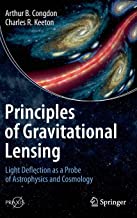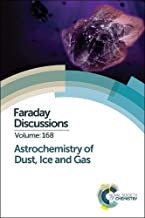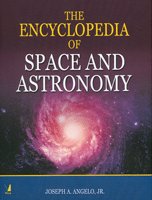Principles of Gravitational Lensing: Light Deflection as a Probe of Astrophysics and Cosmology
Original price was: ₹7,861.58.₹6,289.26Current price is: ₹6,289.26.
ISBN: 9783030021214
Author/Editor: Arthur B Congdon
Publisher: Springer
Year: 2018
2 in stock (can be backordered)
Description
This textbook provides an introduction to gravitational lensing, which has become an invaluable tool in modern astrophysics, with applications that range from finding planets orbiting distant stars to understanding how dark matter and dark energy conspired to form the cosmic structures we see today. Principles of Gravitational Lensing begins with Einstein’s prediction that gravity bends light, and shows how that fundamental idea has spawned a rich field of study over the past century.
The gravitational deflection of light was first detected by Eddington during a solar eclipse in May 1919, launching Einstein and his theory of relativity into public view. Yet the possibility of using the phenomenon to unlock mysteries of the Universe seemed remote, given the technology of the day. Theoretical work was carried out sporadically over the next six decades, but only with the discovery of the system Q0957+561 in 1979 was gravitational lensing transformed from a curiosity of general relativity into a practical observational tool.
This book describes how the three subfields known as strong lensing, weak lensing, and microlensing have grown independently but become increasingly intertwined. Drawing on their research experience, Congdon and Keeton begin with the basic physics of light bending, then present the mathematical foundations of gravitational lensing, building up to current research topics in a clear and systematic way. Relevant background material from physics and mathematics is included, making the book self-contained.
The derivations and explanations are supplemented by exercises designed to help students master the theoretical concepts as well as the methods that drive current research. An extensive bibliography guides those wishing to delve more deeply into particular areas of interest. Principles of Gravitational Lensing is ideal for advanced students and seasoned researchers looking to penetrate this thriving subject and even contribute research of their own.
Product Properties
| Year of Publication | 2018 |
|---|---|
| Table of Contents | 1. Spectroscopy of neutral Peptides in the Gas Phase-Structure, Reactivity, Microsolvation, Molecular Recognition (M. Gerhards). 2. Probing the Electronic Structure of Fe-S Clusters Using Anoin Photoelectron Spectroscopy: Ubiquitous Electron Transfer Centers in Metalloproteins (X. Yang, et al.). 3. Ion/Molecule Reactions and H/D Exchange for Structural Characterization of Biomolecules (M. Green & C. Lebrilla). 4. Understanding Protein Interactions and their Representation in the Gas Phase of the Mass Spectrometer (F. Sobott & C. Robinson). 5. Protein Structure and Folding in the Gas Phase: Ubiquitin and Cytochrome c (K. Breuker). 6. Dyunamical Simulations of Photoionization of Small Biological Molecules (D. Shemesh & R. Gerber). 7. IVR and Ergodicity of Dissociation of Bio-Molecules (C. Lifshitz). PART II: ACTIVATION, DISSOCIATION AND REACTIVITY. 8. Mechanisms of Peptide Fragmentation (V. Wysocki, et al.). 9. Peptide Radical Cations (A. Hopkinson & K. Siu). 10. Photodissociation of Biomolecule Ions: Progress, Possibilities, and the Perspectives Coming From Small-Ion Models (R. Dunbar). 11. Chemical Dynamics Simulations of EnergyTransfer and Unimolecular Decomposition in Collision-Induced Dissociation (CID) and Surface-Induced Dissociation (SID) (A. Rahaman, et al.). 12. Ion Soft Landing: Instrumentation, Phenomena and Applications (B. Gologan, et al.). 13. Electron Capture Dissociation and Other Ion-electron Fragmentation Reactions (R. Zubarev). 14. Biomolecule Ion/Ion Reactions (S. McLuckey). PART III: THERMOCHEMISTRY AND ENERGETICS. 15. Thermochemistry Studies of Biomolecules (C. Wesdemiotis). 16. Energy and Entropy Effects in the Gas Phase Dissociation of Peptides and Proteins (J. Laskin). |
| Author | Arthur B Congdon |
| ISBN/ISSN | 9783030021214 |
| Binding | Hardback |
| Edition | 1 |
| Publisher | Springer |
You must be logged in to post a review.





Reviews
There are no reviews yet.